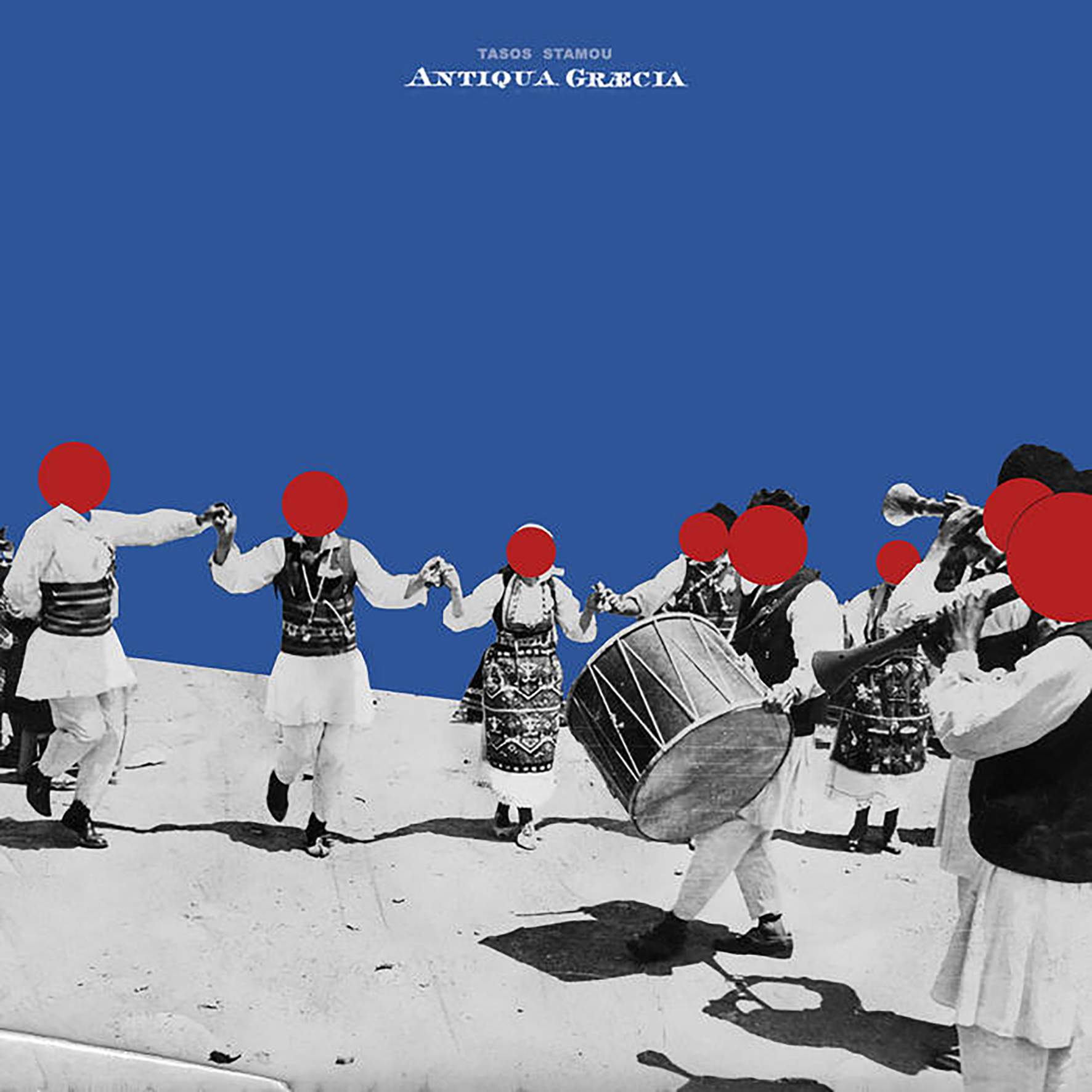Tasos Stamou, "Antiqua Graecia"
 This London-based electroacoustic composer/instrument builder/DIY electronics enthusiast has been engaged in projects and activities for more than a decade now, but this latest album is the first time his singular vision crossed my path. Antiqua Graecia is the final release of a Greek-themed trilogy that began with 2018's Musique con Crète, though there is also a fourth related work that surfaced on Chocolate Monk last year (Greek Drama). The series is the fruit of an extended creative research project that initially began with a residency, but blossomed into repeat summer visits to Crete to hunt for traditional music albums, perform with local musicians, and make field recordings. While I have not fully absorbed the entire series yet, Antique Graecia feels like a significant creative leap forward from previous installments, as Tamou's earlier Greek forays resemble a Sublime Frequencies album dissolved into a fever dream: there was a clear reverence for the source material, yet Tamou's sound collages imbued traditional music with a murky, spectral character. With Antiqua Graecia, Tamou decided to go for broke, gleefully chopping and layering folk songs in a wonderfully psychotropic fantasia. I find all of the strains of Tamou's Greek series to be compelling, but this album is the one that most beautifully transcends tradition to feel like something wonderful and new.
This London-based electroacoustic composer/instrument builder/DIY electronics enthusiast has been engaged in projects and activities for more than a decade now, but this latest album is the first time his singular vision crossed my path. Antiqua Graecia is the final release of a Greek-themed trilogy that began with 2018's Musique con Crète, though there is also a fourth related work that surfaced on Chocolate Monk last year (Greek Drama). The series is the fruit of an extended creative research project that initially began with a residency, but blossomed into repeat summer visits to Crete to hunt for traditional music albums, perform with local musicians, and make field recordings. While I have not fully absorbed the entire series yet, Antique Graecia feels like a significant creative leap forward from previous installments, as Tamou's earlier Greek forays resemble a Sublime Frequencies album dissolved into a fever dream: there was a clear reverence for the source material, yet Tamou's sound collages imbued traditional music with a murky, spectral character. With Antiqua Graecia, Tamou decided to go for broke, gleefully chopping and layering folk songs in a wonderfully psychotropic fantasia. I find all of the strains of Tamou's Greek series to be compelling, but this album is the one that most beautifully transcends tradition to feel like something wonderful and new.
This is an album of top-tier psychedelic mindfuckery from start to finish, which makes it very hard to describe with any concise generalizations, but a rough summary like "a supernatural fun house at the center of a Greek street fair" is probably a solid starting point. There is a distinct arc, however, as the first few drone-based pieces steadily deepen my immersion in Tamou's otherworldly fantasia to prime me for the wilder plunges to come. For example, "Madoura" sounds like a nightmarishly insectoid cacophony of buzzing bagpipe-like drones, while the following "Poor Mum" sounds like mid-90s Dead Can Dance made a lysergic soundscape from Nonesuch Explorer classics. We then pass through something akin to a flickering and phantasmagoric Scottish parade in a haunted jungle ("Oil Wrestling"), a phantom rembetiko song with an electronic doppelganger ("Taki’s Sorrow"), and a Lisa Gerrard-sung DCD classic consumed by a sickly, dissonant delirium of smeared chimes ("A Woman's Moan"). All are a delight, but the album fully catches fire with the sixth piece, "Just Pagan." It begins as a psychotropic throb of heavy electronic drones and surreal, jumbled, and haunting layers of melody and field recordings, but gradually transforms into a heartsick folk dance. The following "Epitaph" is yet another highlight, as the gong of a church bell leaves a ringing, bleary haze of high frequencies that morphs into a squirming, menacing electronic buzz mingled with a chanting street procession. The final piece brings that trend of escalating otherworldliness to its curious crescendo, as it feels like a cathedral is invaded by a churning, honking, and squawking cacophony (and a cow) before everything dissolves into a disarmingly sweet and calm rustic oasis. Tamou truly outdid himself with this tour de force, as all of these eight songs seamlessly blur sacred and traditional sounds with vivid, multilayered psychedelia in impressively singular fashion.
Samples can be found here.



